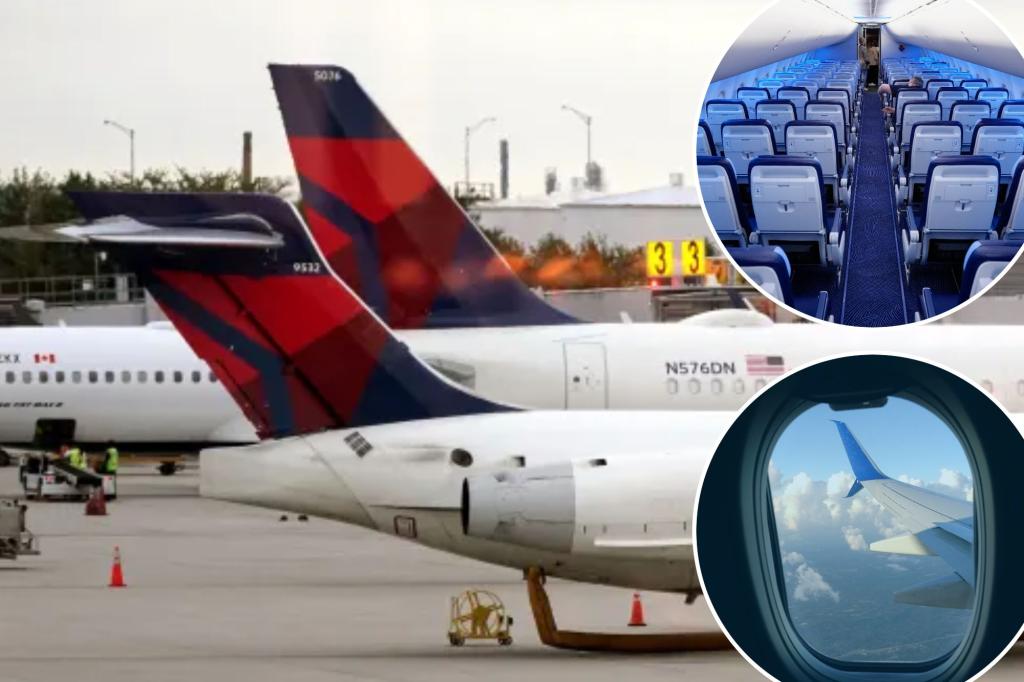The phenomenon of “seat squatting” on airplanes, where passengers occupy seats they haven’t been assigned, has become a trending topic on social media, sparking discussions about its prevalence and appropriate responses. A recent Reddit post highlighted this issue, recounting a passenger’s experience on a Delta flight where they witnessed three separate instances of seat squatting, including a man moving 16 rows forward, a woman insisting on a window seat despite not having it assigned, and a couple relocating to more desirable seats. This anecdote ignited a conversation among fellow travelers, with some expressing frustration over the perceived rise in entitlement and suggesting stricter measures like automatic removal from the plane for offenders. Others offered practical advice, advocating for discreetly alerting flight attendants to resolve the situation without direct confrontation.
The incident raises the question of whether seat squatting is truly becoming more common or simply receiving more attention due to increased social media sharing. While some commenters echoed the original poster’s sentiment, others shared contrasting experiences, suggesting that seat squatting might not be as pervasive as it seems. One commenter mentioned a relatively benign encounter where a passenger simply asked to switch from an aisle to a middle seat to sit with their partner, highlighting the possibility of misunderstandings or simple requests rather than malicious intent. The varying perspectives underscore the need to assess each situation individually rather than making generalizations about the prevalence of seat squatting.
Brandon Blewett, author of “How to Avoid Strangers on Airplanes,” offered his expert opinion on the matter, acknowledging that while seat squatting incidents appear to be on the rise, not all cases are created equal. He differentiated between understandable situations, such as families separated after missed connections attempting to sit together, and more problematic “indignant squatters” who refuse to present their boarding passes. This distinction highlights the importance of considering the context and motivations behind seat squatting before jumping to conclusions. Blewett’s advice emphasizes the importance of relying on flight attendants to handle such situations, preventing potential escalation and further disruptions.
The rise of social media has undeniably amplified the visibility of seat squatting incidents, transforming what were once isolated occurrences into widely shared anecdotes. This increased awareness can be both beneficial and detrimental. On one hand, it sheds light on a common travel frustration and empowers passengers to seek solutions. On the other hand, it can also contribute to a perception of increased prevalence, even if the actual frequency hasn’t significantly changed. The virality of these stories can also create a climate of anxiety and tension among travelers, as they become more attuned to potential seat squatting scenarios.
To address the issue effectively, it’s crucial to distinguish between genuine misunderstandings and deliberate attempts to usurp assigned seats. Clear communication and polite inquiries can often resolve simple confusion, while flight attendants are best equipped to handle more persistent or egregious cases of seat squatting. Passengers should prioritize de-escalation, avoiding direct confrontations that could disrupt the flight and create uncomfortable situations for everyone involved. Utilizing the call button and discreetly informing the flight crew allows them to manage the situation professionally and maintain order.
Ultimately, addressing the issue of seat squatting requires a multi-pronged approach. Airlines can improve their communication and enforcement of seating policies, empowering flight attendants to address the issue promptly and effectively. Passengers can contribute by being mindful of their assigned seats, proactively communicating any seating concerns to the crew, and refraining from engaging in confrontations. By fostering a culture of respect and cooperation, both airlines and passengers can work together to minimize the frequency and impact of seat squatting, ensuring a smoother and more enjoyable travel experience for everyone.


